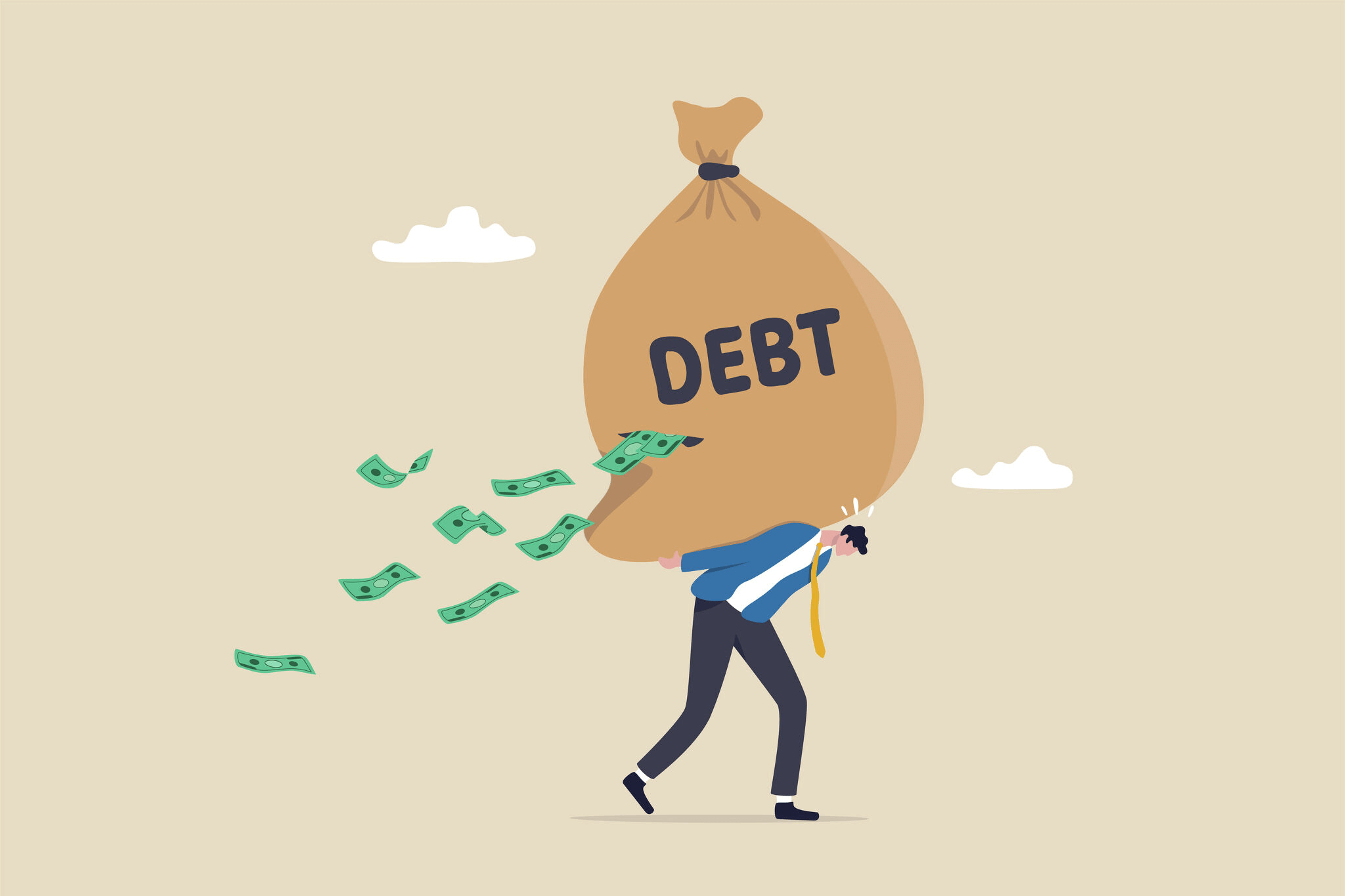Before we dive into our practical suggestions on ways to get out of debt credit card, let’s discuss the general approach to getting out of debt. First and foremost: Make the decision to stop accumulating debt—right now. This means no more swiping your credit card and no more taking out personal loans for items you can’t afford to pay for in cash.

Is this striking a chord? For some of you, this might signify a significant shift. But if you genuinely desire lasting change, you have to break away from old habits and embrace something new.
Here is the good news in just five words: Yes. We. Can. Do. It. By setting and adhering to financial goals, countless people have transformed their lives from being overwhelmed by debt to shouting with joy. I have seen it happen.
How did they achieve it? They followed the steps which we are going to discuss. This tried-and-true plan guides you on how to escape debt for good and begin saving money. With these steps, you’ll stop stressing about making ends meet and start getting excited about your life’s direction.
It is attainable. Remember: We. Can. Do. It. How? Implement these debt-busting tips and free yourself from the burden of debt payments for good.
Get Out of Debt Fast with the Debt Snowball
Quickly, before employing the debt snowball (and these below tips) to get out of debt, you need to establish a safety net.
This is Step 1: saving $1,000 for your starter emergency fund. This money is solely for emergencies! So, once you’ve stashed it away in a savings account, don’t touch it. Got it?
Alright, now that you’ve created a buffer between you and life’s unexpected events, it’s time to go all out—paying off all your debt (excluding the house) using the debt snowball method.

Here’s how it works:
List your debts from smallest to largest—regardless of interest rate. Aggressively tackle the smallest debt while making minimum payments on the rest of your debts. Once you’ve paid off the smallest debt, apply that payment to your next-smallest debt. Repeat this process as you steadily eliminate debt—which typically takes most people between 18–24 months.
This will require dedication, but the end result is undeniably worth it. Picture your life free from the obligation of spending significant portions of your paycheck on items purchased months (or years) ago. Keep pushing!
Now that we’ve addressed how to begin paying off debt, here are other ways to help you become debt-free even faster. Let’s race towards that finish line!
- Craft a realistic budget and stick to it. This is the foundation for financial success.
- Trim unnecessary expenses. Cut back on eating out, subscription services, and other non-essentials.
- Increase your income with a side hustle, freelance work, or by selling items you no longer need.
- Prioritize high-interest debt, as it’s the most expensive to maintain.
- Negotiate with creditors for lower interest rates, waived fees, or more favourable payment terms.
- Allocate windfalls, such as tax refunds or bonuses, towards debt repayment.
- Automate payments to avoid late fees and protect your credit score.
- Track your progress and celebrate milestones to maintain motivation.
- Make biweekly payments instead of monthly to accelerate debt repayment.
- Seek professional advice from a financial coach or counsellor if needed.
- Consolidate your debts if it makes sense, but ensure you have a plan to avoid accumulating new debt.
- Use cash or debit cards to prevent further credit card debt.
- Downsize your lifestyle: Consider a smaller home or more affordable vehicle.
- Reduce utility costs by conserving energy and water.
- Use coupons, shop sales, and buy in bulk to save on groceries.
- Try a spending freeze or no-spend challenge to reset your spending habits.
- Find free or low-cost entertainment options to replace costly leisure activities.
- Cut transportation costs by carpooling, using public transport, or biking.
- Cook at home and pack your lunch to save on food expenses.
- Shop around for better insurance rates and bundle policies to save money.
- Regularly review and adjust your budget to reflect changes in income and expenses.
- Stay focused on your financial goals by connecting with like-minded individuals or support groups.
- Practice gratitude and contentment to reduce the urge to spend.
- Learn to differentiate between wants and needs.
- Set short-term and long-term financial goals to maintain motivation.
- Be patient and persistent—debt repayment is a marathon, not a sprint.
- Continually educate yourself about personal finance to make better financial decisions.
- Don’t forget to reward yourself (within reason) for making progress in your debt repayment journey.
Remember, the journey to a debt-free life won’t be easy, but it will be worth it. By following these tips and staying dedicated to your goals, you’ll be able to live a life free from the shackles of debt. Embrace the challenge and enjoy the freedom that comes with being debt-free. You can do this!
Essential Tips for Becoming Debt Free
Create a budget!
Budgeting is crucial for getting out of debt, and it doesn’t have to be a chore. Use budgeting apps like EveryDollar and implement a zero-based budget to allocate every dollar to a specific purpose, helping you identify areas to cut back and increase your debt payments.
Start a side hustle.
Starting a business is easier than ever. Sell handmade products online or offer dog walking and pet sitting services. You might be surprised by your success.
Get a part-time job.
If you don’t want to start a business, consider part-time jobs like driving for Lyft or Uber, delivering pizzas or food through Uber Eats or Grubhub, to bring in extra money.
Sell your car!
The average new car payment is $667 a month. Replace that with a used car you can pay for in cash, and use the extra money to pay off your debt.
Destroy your credit cards.
Get rid of your credit cards to break the cycle of debt. Don’t believe the credit card industry’s claim that closing accounts is harmful. Cut them up and never look back.
Implement the envelope system.
Paying with cash makes you more conscious of your spending. Use custom envelopes to track your spending and stick to your budget.
Pause investing.
Temporarily stop investing, including 401(k) contributions. Focus on paying off debt and building a 3-6 month emergency fund before resuming investing.
Stop comparing yourself to others.
Trying to keep up with the Joneses will only keep you in debt. Embrace a debt-free lifestyle to achieve long-term financial success.
Teach your kids about budgeting.
Get your children involved in the family budget and teach them the value of living debt-free. Don’t be afraid to say “no” to unnecessary purchases.
Enrol in Financial Peace University.
Learn the step-by-step plan for becoming debt-free with Financial Peace University (FPU), a nine-lesson course offering support and accountability.
Ways to Make and Save Money and Shop Smart
- Use coupons: Save money by using coupons for items you already planned to buy, but avoid overspending on unnecessary products.
- Try consignment shopping: Purchase pre-loved clothing for you and your children at consignment stores or online platforms like thredUP and Swap.com.
- Cut cable: Explore budget-friendly streaming services and put the saved money towards your debt.
- Cook at home: Eating out is expensive. Save money by preparing meals at home and inviting friends over instead of going to restaurants.
- Plan your meals: Meal planning helps you save money on food, allowing you to allocate more income to paying off debt.
- Brew your own coffee: Save money by making coffee at home and putting the savings towards your debt.
- Visit the library: Take advantage of free books, e-books, and audiobooks available through libraries and apps like Libby, Hoopla, and Project Gutenberg.
- Make a grocery shopping list: Stick to a grocery list to avoid impulse buys and overspending.
- Shop for groceries online: Online grocery shopping helps you avoid impulse purchases and find deals exclusive to online shoppers.
- Avoid costly hobbies: Temporarily forgo expensive hobbies to focus on debt repayment.
- Cancel your gym membership: Exercise outdoors or at local parks for free, and use the savings to pay off debt.
- Seek free entertainment: Find free or low-cost activities and events to save money on entertainment.
- Request a raise: Approach your employer with a well-reasoned request for a salary increase.
- Learn to say no: Practice declining unnecessary expenses to prioritize debt repayment and build a secure financial future.
- Sell items on Marketplace: Turn unwanted possessions into cash by selling them on platforms like Facebook Marketplace, Gumtree, Craigslist, or eBay. Use the proceeds to make money and pay down debt.
- Refinance your mortgage: If interest rates have dropped since you took out your mortgage, consider refinancing to reduce your monthly payment. Redirect the savings towards debt repayment.
- Consolidate student loans: Explore the possibility of consolidating your student loans to lower your interest rate and simplify repayment. Ensure that the new loan terms align with your financial goals.
- Cut down on utilities: Save on utility bills by using energy-efficient light bulbs, unplugging electronics when not in use, and conserving water. Allocate the savings to debt repayment.
- Utilize a balance transfer: Transfer high-interest credit card debt to a card with a lower interest rate or an introductory 0% APR. Be cautious of balance transfer fees and ensure you can pay off the balance within the promotional period.
- Negotiate lower interest rates: Contact your creditors to negotiate lower interest rates on your loans and credit cards. Lower rates can save you money and speed up your debt repayment.
- Use a debt avalanche: Similar to the debt snowball, the debt avalanche focuses on repaying the debt with the highest interest rate first. This method can save you money on interest payments and help you become debt-free faster.
- Utilize tax refunds: Use your tax refund to make a significant dent in your debt. Apply the refund to the highest interest rate debt or use the snowball or avalanche methods.
- Apply bonuses or raises to debt repayment: Whenever you receive a bonus or raise at work, allocate the additional income to your debt repayment plan instead of increasing your spending.
- Stay committed and focused: Eliminating debt takes time, discipline, and dedication. Keep your eyes on the end goal and celebrate small victories along the way. Stay committed to your debt repayment plan and remember that achieving financial freedom is worth the effort.
In conclusion, becoming debt-free is a challenging but rewarding journey that requires determination, discipline, and a well-structured plan. By implementing strategies such as budgeting, cutting expenses, increasing income, and using effective debt repayments methods like the debt snowball or avalanche, you can successfully pay off your debts and achieve financial freedom. Remember to celebrate your progress, stay focused on your goals, and maintain a positive attitude throughout the process. With patience and persistence, you’ll be able to overcome your debt and enjoy a more secure financial future.

